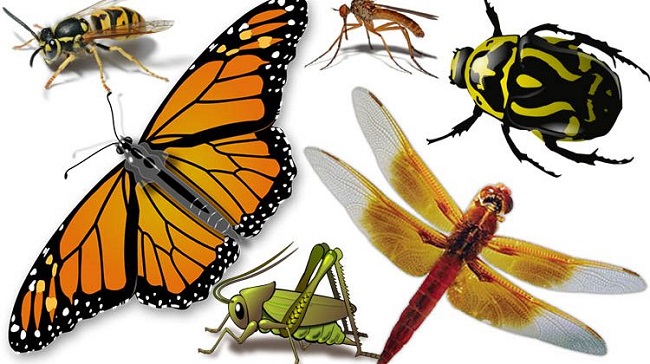Most of us dislike the little crawly things, and their buzz just gets on our nerves. Sometimes we even wish that insects could just die out, at least picnics will be more fun and gardening much more pleasant.

If you think bugs are just meant to give us the creeps and some other insects just for increasing our allergies and give us skin irritation, spread diseases, destroy our crops and serve us the most painful stings there is, you are probably partially right!
Sometimes when we hear a loud buzz from a tiny flying creature close to our ears, we just swing into action and try to kill it. Well, most of us are guilty of “numerous counts of first-degree murder” when it comes to serial insect killing.
Insects live in every environment on our planet but most of them are found in warm and moist tropics, they have adapted to a broad range of habitats, successfully finding their own niche, because they eat almost any substance that has nutritional value. Insects are a pivotal component of many ecosystems, where they perform myriad of important functions.
They aerate the soil, pollinate blossoms, and control insect and plant pests. Many insects, especially beetles, are scavengers, feeding on dead animals and fallen trees, thereby recycling nutrients back into the soil.
As decomposers, insects help create top soil, the nutrient-rich layer of soil that helps plants grow. Burrowing bugs, such as ants and beetles, dig tunnels that provide channels for water benefiting plants. Bees, wasps, butterflies, and ants pollinate flowering plant. Gardeners love the big-eyed bug and praying mantis because they control the size of certain insect populations, such as aphids and caterpillars, which feed on new plant growth.
All insects fertilise the soil with the nutrients from their droppings. Insects have tremendous economic importance. Some insects produce useful substances, such as honey, wax, lacquer, and silk.
It is astonishing and bizarre at the same time that we have been so reckless with the health of our planet. We are changing the climate in such a way that our damages might become irreversible in a few years. We are still cutting down the rain forest, eroding the soil, polluting land and water with plastic, depleting the aquifers, overharvesting fish, coral bleaching and causing biodiversity loss, even though we are pretty sure they are all dumb things to be doing. When it comes to conservation of biodiversity, what we concentrate on is preserving the big animals and in all of this struggle we are narrowly missing the quiet disappearance of insects.
Insects make up themselves the majority of biodiversity of the planet and that is about sixty per cent. They serve as food for other animals like birds, amphibians, lizard’s etcetera and they could go extinct if they don’t have food. About eighty seven percent of all the plant species on the planet need pollination from and by insects. According to research three quarters of the crop varieties that we grow in the World depend insect pollination, without insects we wouldn’t have all the lovely mouth-watering food that we have become accustomed to, well without them life wouldn’t be worth much now, would it?
An American Biologist E.O Wilson once said “if all mankind were to disappear, the world would regenerate back to the rich state of equilibrium that existed ten thousand years ago. If insects were to vanish, the environment would collapse into chaos”.
Insects have also been used in medicine. In the past, fly larvae (maggots) were used to treat wounds to prevent or stop gangrene. Gangrene is caused by infection of dead flesh. Maggots only eat dead flesh, so when they are placed on the dead flesh of humans, they actually clean the wound and can prevent infection. Some hospitals still use this type of treatment.
Without insects we will be left to battle an unending consequence of climate change and our landfills will never decompose (that’s without the plastics though), corpses will be left to smell without also decomposing, pollination will seize to exist and our food production is dry out exponentially, there will be no food for animals who feed on insects, they will begin to die out and it will climb up the ladder until it gets to us humans.
Without insects us humans will loose on many fronts and that is something that none of us will be able to survive. We must therefore protect the insects for environmental sustainability and ultimately because insects can literally save our lives.
By Halima Imam, axk4lima@gmail.com
